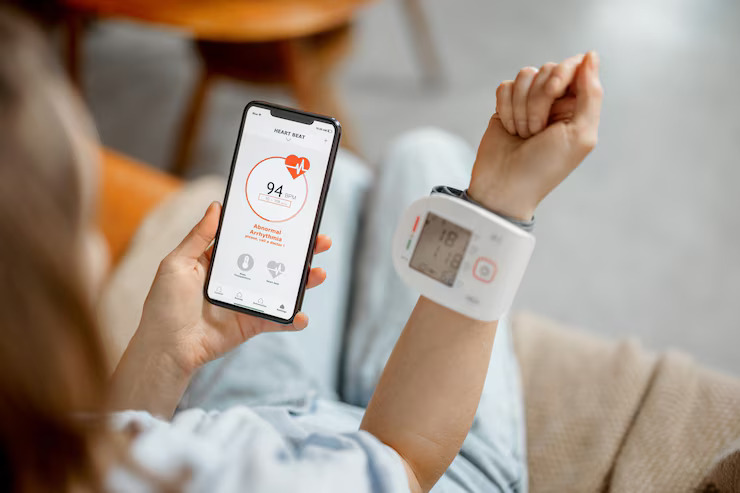Informed consent is one of the founding principles of research ethics. Its intent is that human participants can partake in medical research freely (i.e., voluntarily) with full information about what it means for them to take part; and, that they give consent before they participate in the clinical research study.
Electronic consent (eConsent), also known as electronic informed consent (eIC), is a method of obtaining informed consent through the use of an electronic system instead of a paper consent form. Technology solutions, like Delve Health’s Clinical StudyPal app, allow for a digital consent process that potential study participants undergo prior to enrollment, as well as throughout the study, to confirm their comprehension.
eConsent platforms are advantageous and generally easy enough for sponsors and sites to implement into their day-to-day operations. These tools bring value for all stakeholders, and patient participants, within the process. eConsent:
- Reduces the burden of paperwork for clinical trials staff and its storage implications, which leads to greater accuracy and efficiency—saving time and money;
- Simplifies the complex informed consent processes for participants, which boosts patient engagement overall;
- Provides sponsors with real-time patient participants’ consent data, supporting the study management and regulatory processes.
New Technology, New Definition
The FDA proposed the following definition for “e-Consent” in its December 2016 guidance: “electronic informed consent refers to using electronic systems and processes that may employ multiple electronic media (e.g., text, graphics, audio, video, podcasts and interactive websites, biological recognition devices, and card readers) to convey information related to the study and to obtain and document informed consent.” The advantages of using this type of eICF applies to patients, investigators, and staff.
First of all, the consent is designed to explain the clinical trial process clearly using terminology that is easy to understand for patients. As different people process the same presented information in different ways (e.g., some people are “visual” others are “aural,” etc.), mixed media offers a higher chance of success to adequately present patients with the most important information up front.
Due to increased regulations to ensure a patient’s privacy and safety, potential study participants are often presented with a document averaging 15-to-20 pages. For patients to read the entire document and comprehend the nuance of each paragraph often requires more time than allocated during a single visit.
eConsent is a game-changer because patients will have the opportunity to be informed by different means, like video and/or audio clips, graphics, examples, hyperlinks, etc. The multi-media interaction is even accessible via the patient’s own device (e.g., smartphone, tablet, computer, etc.). This accessibility allows patients to take the information home, via their personal device, and discuss with family and friends—and even do some additional research, if they wish, all from the same device without any additional equipment. The interactive presentation of the study procedures and commitments should make this informed process not only easier to understand, but also more comprehensive.
A Fundamental Change in Trial Designs
One device, recently presented at an eConsent conference included a short test to assess the potential participant’s comprehension. With adequate understanding, a patient participant is more likely to remain committed to study processes or to decline participation immediately—resulting in increased compliance and subject retention. The FDA guidance, which is generally very supportive of an eConsent process, specifically mentions the ability to remotely update the informed consent when amendments are implemented and new information becomes available during the conduct of a trial. Compared to the traditional method of updating a paper ICF, there are potentially significant cost and time savings expected. For the staff, to present the consent to the potential patient participants is always time consuming and requires extensive training. By definition, the quality of the interaction between the patient and the site/sponsor is dependent on the knowledge and talent of the clinical study team. With an eConsent everyone receives accurate, standardized and up-to-date information, making the process more streamlined, automated, and complete.
The use of digital technologies (e.g., wearables, biosensors, smartphones, and other devices) will fundamentally change the way we design, deliver and manage the informed consent process—not only for the benefit of patients but also for sponsors—who can expect a more accurate patient selection and participation. This in turn, will translate in an improved quality of the data collected.
Significant Advantages
A User-Friendly Experience. eConsent streamlines trial experiences, for both the clinical study staff and patient participants, from day one. It creates uniform processes for developing and managing informed consent and sends a message to participants that their time and participation is valued. Almost everyone in the world has now become accustomed to digital interactions in their personal and professional lives. They will expect the same level of digital-ease and sophistication during their period of participation in a clinical trial.
Increased Patient Compliance. Research shows that incomplete informed consent forms are one of the most common reasons for protocol deviations in clinical studies. In addition to the implications of increased cost, these deviations can lead to unusable data and create avoidable delays within clinical trials. eConsent technologies dramatically reduce this risk.
Remote Access & Interactions. Decentralized, virtual and hybrid clinical trials give participants the flexibility to participate in clinical research without the need to visit sites for every, single step and benchmark within a clinical trial. eConsent tools support this flexibility by allowing site staff to consent participants efficiently, effectively and remotely. Delve Health’s eConsent tool also allows patients, legal guardians, caretakers, etc. to read and sign the consent at their own convenience, regardless of their location; as well as for all necessary digital signatures to be captured safely and securely—remotely. These flexible digital consenting options improve the participants’ experiences overall, which leads to better recruitment and retention rates at sites.
Seamless Workflows. Clinical site staff across the globe serve an on-going flow of patients, often for multiple trials at a time. eConsent tools and platforms ease their efforts and simplify the complex process of tracking consents and protocol amendments by generating timely alerts, reminding their patients to take action to complete the necessary tasks that are due.
Patient Recruitment & Diversity. It should also be noted that the usage of multi-media messaging allows clinical study teams the opportunity to recruit a more diverse group of patient participants—remotely across the globe—serving traditionally underrepresented populations.
Multi-media can also solve language barriers and impairments. For example, videos can be pre-recorded in multiple languages, including sign language for those potential patients who are hearing impaired. For patients who are vision impaired, audio messages can also be recorded in abundant, verbal detail to meet those patients’ needs.
Concerns & Challenges Addressed
Clearly, we’ve demonstrated that there are many advantages to incorporating eConsent and using a true end-to-end technology platform and solution like Delve Health’s Clinical StudyPal. That said, there are also concerns regarding potential challenges that are associated with the implementation of eConsent that we should address.
One question that’s always comes up is in regards to the costs of implementing technology solutions. In the short-term, the costs associated with the customization and implementation of your study’s workflows and the making of a multimedia eConsent form is higher than a printed version. However, these costs should be considered as an investment in how you will conduct clinical trials moving forward, rather than just another cost. If patient recruitment increases, along with patient compliance and patient retention throughout the clinical trial, a site or sponsor has to consider the real impact on the overall bottom line—saving not only money but valuable time for the clinical study’s staff—increasing efficiency and data integrity too!
Another topic that arises when we speak with potential clients is data security and patients’ privacy, which of course is a valid concern when discussing the use of any we-based technology. Delve Health’s Clinical StudyPal solution is already HIPPA compliant, GDPR compliant, and FDA 21 CRF part 11 compliant. We have also begun implementing features like facial recognition to verify and confirm a patient’s identity prior to allowing access to documents that include personal, sensitive information. We have always been patient-centric in our approach and design of our technology solutions—ensuring patient safety, data security, and a positive patient experience overall.
Choosing the Right Platform for Your Clinical Trials
If sponsors want sites to overwhelmingly adopt, integrate, and implement eConsent technology solutions as part of their trial strategy, they must demonstrate the ease-of-use and time savings it will bring for on-site clinical staff. As we mentioned earlier, the first step would be choosing an eConsent platform that is intuitive and easy to integrate into their workflows. Staff will quickly abort the use of any technology or process that has a frustrating user experience for them or their patients.
When choosing a platform, sponsors should look for technology that offers customizable options to ensure the needs of each and every unique clinical trial and its specific protocols can be efficiently and effectively met. Other features like a seamless user-experience that includes built-in tools that help patients easily navigate and take next steps, making it easy for them to complete all forms on-time, without the need for additional assistance, is key.
When researching your eConsent options, it is important to also consider the support provided by the vendor of the platform. An experienced company within the clinical research enterprise should be equipped with a global, dedicated implementation team that can offer customization and training for the technology platform; as well as help desk support to sites and patients for 24/7 troubleshooting ands problem resolutions.
The Future is Now
eConsent tools are poised to be “a new norm” of clinical trials all over the world. Encouraging sites and sponsors to adopt available technology solutions today will cast a wider net for patient recruitment, including of diverse patient populations; as well as improve patient compliance; boost patient retention; and, optimize consent data management— all while simultaneously providing patient participants with a high-quality, engaging experience from the outset of the trial.
To learn more about Delve Health’s eConsent technology visit:
https://delvehealth.com/services/patient-econsent
To schedule a demo, visit:
https://calendly.com/delvehlth/30min?month=2022-11






































